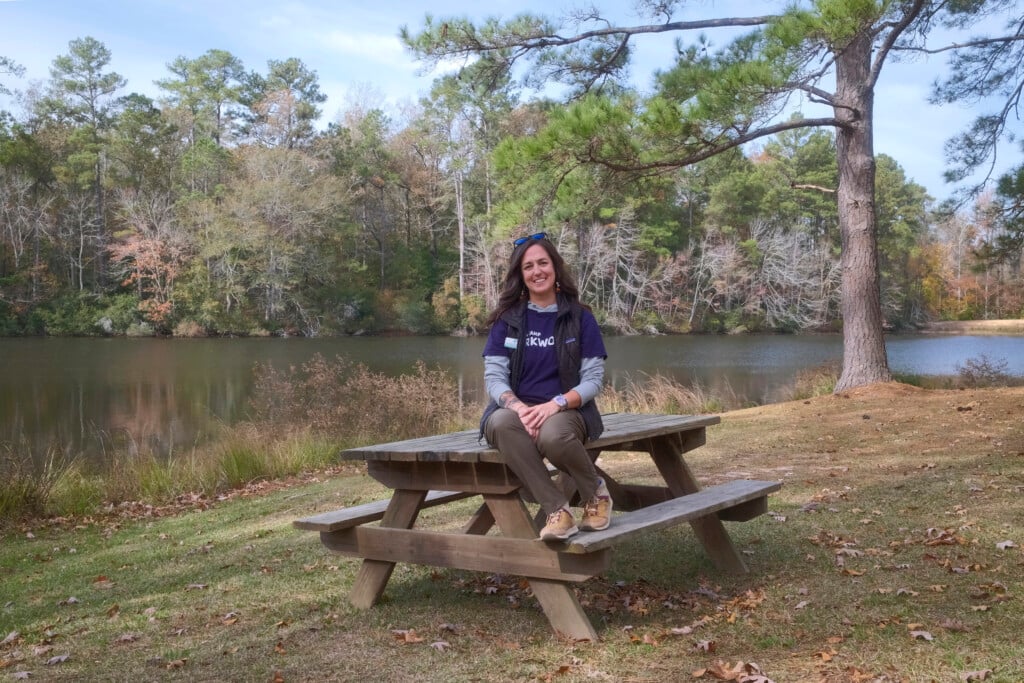Community Crops
Feast Down East executive director gets fresh food on local tables
If you have ever enjoyed the richness of fresh, locally grown food from a Wilmington-area restaurant, grocery store, or farmers market, chances are Feast Down East played a role in making that happen.
Nonprofit organization Feast Down East strives to build a stronger local food infrastructure throughout Southeastern North Carolina by supporting local farmers, contributing to economic growth, and ensuring access to healthy and affordable locally grown food for everyone.
Feast Down East has worked with thirty-eight local farmers so far this year, with plans to serve as many as fifty farmers by the end of the year. They assist farmers with sales distribution, education and certification opportunities, among other things. Their farmers specialize in a wide diversity of crops, from produce to cattle to seasonal crops to goat cheese.
“We are a resource for them, increasing the economic viability of their farm,” says executive director JORDYN APPEL-HUGHES. “We ensure their product and their food is accessible to all.”
While studying abroad in New Zealand, Appel-Hughes, who is originally from Michigan, discovered a connection between food, water, farming, and environmental sustainability, igniting her passion for this work. After graduating with an anthropology degree from Grand Valley State University, she initially joined Feast Down East as a FoodCorps service member and relocated to Wilmington. When her stint with FoodCorps ended, she was offered the opportunity to stay on as the mobile market manager, and she has never looked back.
During her nine years with Feast Down East, Appel-Hughes has worked her way up through the nonprofit organization, including roles as program director and deputy director. In her current position as executive director, which she has held since April 2022, she does a little bit of everything for the organization she calls “small but mighty.” She oversees operations, programming, development, and human resources, among other responsibilities.
Through its FoodRx program, Feast Down East, in partnership with Novant Health, is getting healthy food into the hands of local people affected by food insecurity. Novant identifies food-insecure residents, and Feast Down East provides them with a monthly voucher that they can spend on various local food items at the organization’s mobile market sites.
“Local food tends to have a higher density of nutrients and vitamins that one needs to be healthy,” Appel-Hughes says. “That should be accessible and affordable to everyone.”
Appel-Hughes notes that food insecurity can involve “not eating the right kind of food or not eating quality food.” The FoodRx program offers “purchasing power with their health and allows them to heal themselves with food,” she says.
One of the largest barriers to food security in Southeastern North Carolina is transportation. Brunswick County has a very limited public transportation system, and Pender County has no public transportation at all, Appel-Hughes says.
To combat the transportation barrier, Feast Down East brings affordable, healthy, local food to various communities throughout the region through its mobile market. Known as “Flo,” the group’s refrigerated Ford transit van sets up shop in various Wilmington neighborhoods and smaller outlying communities in Rocky Point, Burgaw, and Shallotte. While they target lower income families in food desert areas, their mobile market is available to everyone, Appel-Hughes emphasizes. Flo’s schedule can be found on Feast Down East’s website and social media.
The nonprofit is supported financially by grants, sponsorships, donations, and fundraisers. On December 8, Feast Down East is hosting an Oyster Roast Fundraiser featuring food from Rx Chicken and Oysters, beverages from Mother Earth Brewing, live music, and a silent auction. Tickets may be purchased at the nonprofit’s website.
Appel-Hughes notes that the importance of Feast Down East’s work can be seen every day in the impact they make on the local food infrastructure. “We work to close the food system loop to build resilience, working with farmers every step of the way to find creative solutions,” she says. “We believe in the power of creating accessible means of local food and supporting local farmers.”
To view more of photographer Madeline Gray’s work, go to madelinegrayphoto.com.
Want more WILMA? Click here to sign up for our WILMA newsletters and announcements.




